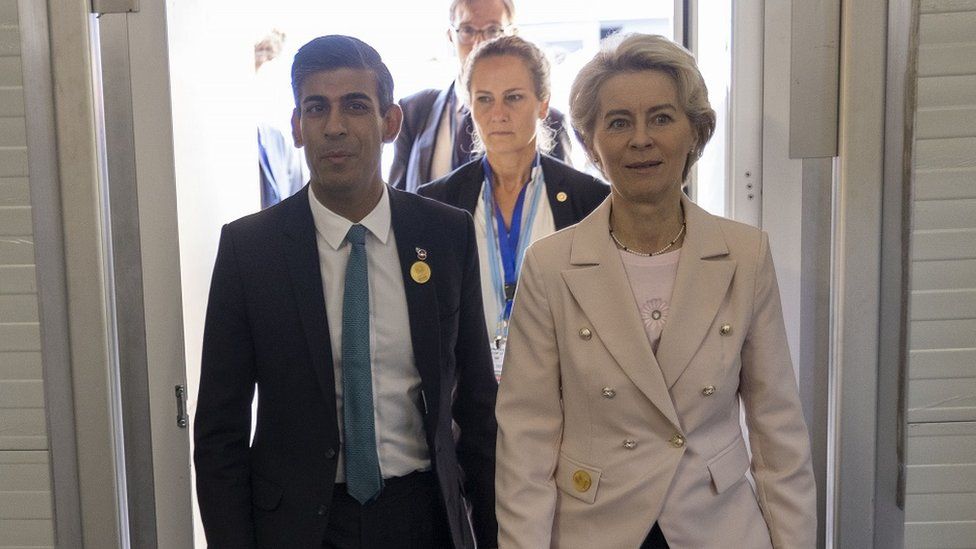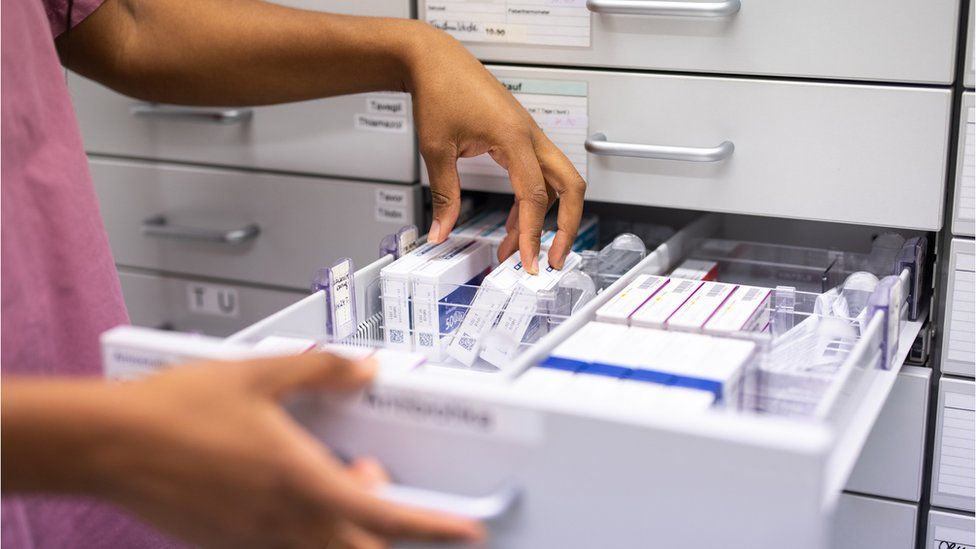A House of Lords Committee has warned that the protocol has resulted in significant unresolved problems with the supply of medicines to Northern Ireland.
The protocol, a post-Brexit agreement, keeps Northern Ireland under the jurisdiction of the EU's pharmaceutical regulatory framework.
As a result, the EU altered some of its laws to address the practical issues it was creating.
But according to the Lords, additional measures will be required to prevent supply disruption.
There is a widespread belief that the issues with the supply of medications to Northern Ireland have been resolved by the EU legislation that took effect in April 2022, according to Lord Jay of Ewelme, chair of the subcommittee on the Northern Ireland Protocol.
This is obviously not true. Even though the legislation was favorable in its initial form, it is obvious that important problems still need to be resolved.
The provision of medicines to Northern Ireland must not be neglected because it is believed that the issues have been resolved while the outcome of the UK-EU negotiations over the protocol's future is awaited. '.

The operation of the protocol has been the subject of intense negotiations between the UK and the EU, and this week's announcement of a deal by the prime minister was anticipated.
The Democratic Unionist Party (DUP) and some Conservative MPs, who worry that the changes won't be drastic enough, have opposed his plans.
Any new agreement may or may not include additional adjustments to the laws governing medications at this time.
The EU Falsified Medicines Directive (FMD) being applied to Northern Ireland but not to Great Britain, according to testimony before the committee, is "the single biggest factor" causing ongoing problems.
It imposes requirements on distributors shipping goods to Northern Ireland, such as sample verifications of all medicine packs and checking and decommissioning products prior to passing them to every healthcare facility there that is not a hospital, pharmacy, or doctor.
There is also the additional administrative burden of deactivating security features upon product entry into Great Britain and activating them upon product entry into Northern Ireland for medicines traveling from the EU to Northern Ireland via Great Britain.
But the committee claimed that since there have been no reports of serious problems with fake medicine in Northern Ireland, the issue that these procedures are meant to address is "minuscule.".

The UK government is imposing a change that will affect how some medicines are licensed. This is the other significant issue.
A divergence between licensing requirements between GB and NI will result from some products that are currently sold under an EU license having to move to a GB license.
The production of Northern Ireland-only packs, which will be necessary as a result of this change, has received warnings from some manufacturers that it would not be commercially viable.
The UK government had the power to stop the regulatory change that would cause the divergence, the committee was informed.
In a letter to the government, the organization demanded to know what steps were being taken to find a long-term solution to the licensing problem by the end of 2023, in cooperation with the EU.
Aside from the protocol, the committee also emphasized that there were additional problems with medicine supplies.
"Our witnesses pointed out that the issues with medicine supply to Northern Ireland are part of a larger set of issues affecting the sector," it read. "These issues include the wider impact of Brexit on supply chains and product testing, problems with global supply chains, and shortages and rising prices of products since the COVID pandemic.
"As a result, it is challenging to separate the influence of the protocol from other factors.
. "







